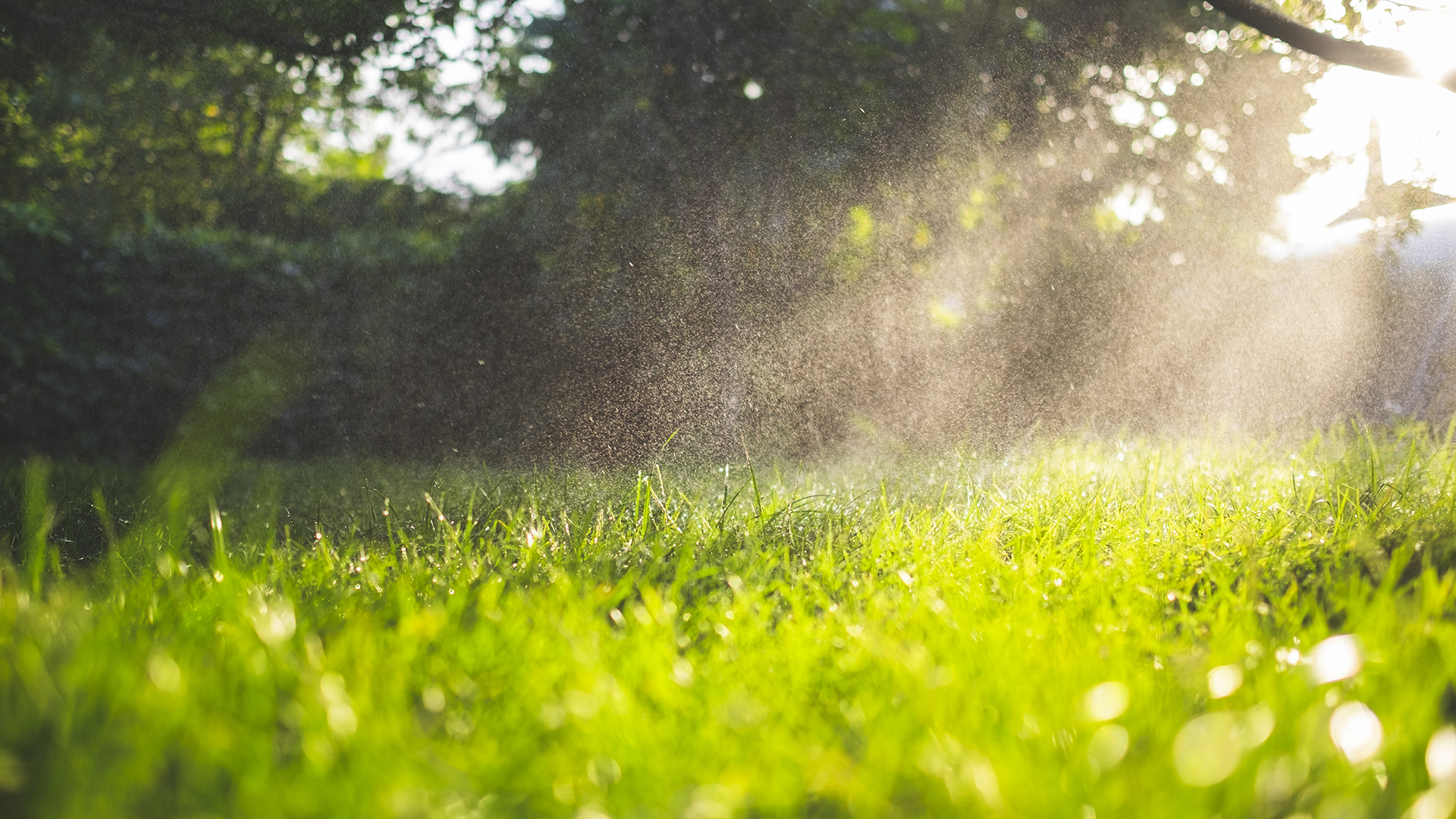Why you shouldn't be mowing wet grass
Tempted to be mowing wet grass? These are the ten reasons why you should avoid it.

Sign up to receive the latest news, reviews, buying guides and deals direct to your inbox
You are now subscribed
Your newsletter sign-up was successful
Ever been tempted to try mowing wet grass? You’ll want to think twice before attempting it. There are good reasons why you should avoid bringing out the lawn mower if you've got damp conditions. You may be disappointed with the results as you’re more likely to end up with an uneven finish. On top of that, mowing in wet conditions can damage your lawnmower and cause problems for you.
Whether you’re a gardening newbie or you’ve been mowing for years, understanding why you shouldn’t be mowing wet grass with either the best gas lawn mowers or the best electric lawn mowers can help you make an informed decision about whether to risk it. Regardless of whether your lawn is damp from the morning dew or rainstorms, you’ll want to arm yourself with knowledge about how wet conditions affect mowing.
Why you shouldn't be mowing wet grass
1. The finish will be uneven
If you brave mowing in wet conditions, you’ll likely wind up with a messy finish. “When wet, a lawnmower will slip and tear the grass if the blade isn't very sharp,” explains Marc Kerr, lawn specialist and co-founder of So & Mo. You’ll miss out on the satisfaction of admiring a clean cut.
2. You’ll miss patches
In addition to tearing, you may miss blades of grass altogether. To achieve a clean cut, grass must be upright and taut. Yet in wet conditions, beads of moisture weigh down the blades of grass and cause them to bend. The mower may miss the blades as you pass over them. Once it’s dry, they’ll pop back up and you’ll be left with annoying stray blades.
3. Your lawnmower may leave marks
Sign up to receive the latest news, reviews, buying guides and deals direct to your inbox
After rainfall, the ground will be wet too. Soft soil combined with heavy machinery is bad news. You may find your lawnmower sinks into the ground resulting in unsightly wheel ruts.
“If you mow the lawn when it's wet, you won't get a clean cut the first time around. In most cases, you'll need to double cut it for an even finish,” says Marc. When it comes to top tips for maintaining your lawn, Marc has this advice: “To get your lawn in shape, start with a clear out. As it gets warmer, use a rake (or a scarifier) to clear your lawn of moss and thatch that has built up over winter. Focus on small areas at a time and scrape in different directions for best results.”
4. Your lawn will be susceptible to infections
Mowing wet grass creates a perfect storm for fungal infections. Fungi thrive in wet grass, especially if it is torn. Your lawn will be prone to fungal infections such as brown patch, which affect the health and appearance of your lawn.
5. You can damage your lawn
If you cut your lawn when it’s wet, the grass clippings will form clumps. If these trimmings are left on the lawn, they will block sunlight and airflow and could stifle the grass below.
6. You’ll strain your lawnmower
You’ll risk damaging your lawnmower as well as your lawn. Clumps of grass clippings can clog up your lawnmower. It has to work harder to get the job done, and this can shorten its lifespan, not ideal for an expensive piece of equipment. Even worse, water and metal are not friends. Mowing in the rain may lead to rusty blades.
7. You’ll have more maintenance on your hands
It’s not just the mower that works harder in wet conditions, you will have more on your plate. If you decide to cut wet grass, you’ll want to sharpen the blades first. You’ll also need to rake your lawn to eliminate clumps and remove clippings from the inside of your mower.
8. It will take you longer
All of this adds up to the job taking you longer. Experts recommend positioning the mower so it’s half on grass you have already mown and half on uncut grass to reduce the strain on the mower. You’ll have the nuisance of having to redo your work.
9. You may end up with grass stains
If that wasn’t enough of a pain, you risk pesky grass stains. Wet grass penetrates deeply. One chore creates another as you may have your work cut out to eliminate the stains.
10. There’s a risk to your safety
Worried about safety? You’re right to be concerned. You’re more likely to slip in wet conditions, particularly on sloping ground. Add a heavy piece of machinery with sharp blades into the mix, and you’ve got a safety hazard. If you have a corded electric mower, mowing wet grass is a no-no. You could be electrocuted if worn patches on the cord come into contact with water.
Discover more guides for the garden…
Best riding lawn mower
Best robot lawn mower
Best chainsaws
Best pool heaters
Best swim spas
Best water heaters
Best patio heaters
Louise Bond is a UK-based writer and the founder of The Cove Copy. She has been published in The Guardian, Breathe, Fit & Well, Top Ten Reviews, and more. When she’s not writing, you can usually find her out in nature, whether hiking in the woods or pottering in the garden.

